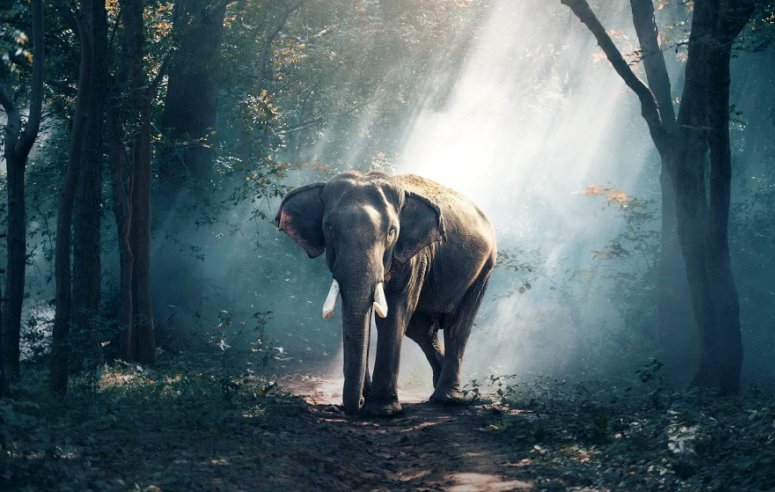Sushree Mohanty
The Madras High Court has expressed its opinion that a uniform law must be set up to restrict future ownership of Elephants, both by people and temples and to bring all elephants under the care and responsibility of the Forest Department.
The Court likewise directed the State to come out with an arrangement or a policy for the welfare and assistance of elephants, regardless of whether they are owned by the temp;es or private individuals.
The Court has allowed two months’ time to the State after which the case will be heard for further deliberation.
The Court has additionally communicated its concern over the fact that some elephants may not be dealt with so well, alluding to a video that was posted on social media some days back.
“Any sort of abuse of elephants and different animals should be dealt expeditiously and as brutally as such people manage the animals,” the Court added, in its request.
The Division Bench comprising of Chief Justice Sanjib Banerjee and Justice Senthilkumar Ramamoorthy further stated that the abuse of animals should be restricted for all reasons, with the exception of government-controlled activities, say horse-riding or camel-riding on the seashore.
“… but even these cannot be privately operated since the treatment of the animals cannot be checked or monitored,” the Court said.
The Court was hearing a Public Interest Litigation (PIL) plea filed by activist Rangarajan Narasimhan over the supposed unfair treatment of some elephants at the Srirangam Ranganathaswamy temples.
Among different contentions, he raised his concern over the elephants being isolated from their mahouts, contending that there was no reason to accuse the mahouts.
The plea also called for attention to the fact that, according to the Tamil Nadu Captive Elephants (Management and Maintenance) Rules, an elephant should be kept under care by the same mahout and assistant of the mahout (cavady) during its whole life expectancy, with the exception of when they are under intoxicated condition or suffering from an ailment.
He likewise presented that the elephants being referred to do not have records needed for their legal ownership.
In its request, the Court proceeded to believe that the case raised worries about whether elephants owned by individuals and temples were being abused for rides or utilized as “beast burdens” to move hefty material.
In its proceeding, Chief Justice Banerjee enquired as to whether there were rules against private ownership or gifting elephants to temples. The State responded in affirmative saying that there are indeed rules set up on this issue.
The Court continued to see that elephants ought to preferably be under the care of the Forest Department office and that all temples and humans ought to be disallowed from owning elephants.
The Bench added that rules should be given by the Forest Department Authorities to guarantee that elephants are not abused. Elephants should not be ill-treated any longer, Chief Justice Banerjee stated.
Towards this end, the Court requested that the State outline an exhaustive approach and rules in the matter within two months. The Bench added that the State may consult specialists for the matter.
“Experts may be consulted, rehabilitation of the elephants which have been lured away from forests may be taken up and future measures put in place so that the animals are not exploited by humans in the State any further”, the Court added in its request.
The petitioner additionally claimed that requesting the State outline more rules would be exhaustive.
It was argued that the State has already made rules concerning the elephants. However, there is no interest with respect to the Animal Welfare Board of India (AWBI) or the forest division to act, in spite of bringing the cases of negligence and violation of their notification.
The Court additionally stated that for the present, it would seek the State’s response on the matter. It said that it would attempt to define and design a new rule so the elephants are no longer treated as load animals and are permitted to return to the forest.
Earlier, the Madurai Bench of the Madras High Court communicated concern over the increased death of elephants in the State, considering which it gave out a notification to the Central Bureau of Investigation (CBI) to investigate the matter.
Read more: Madras HC awards compensation to 23-year old elephant attack victim after 20 year

